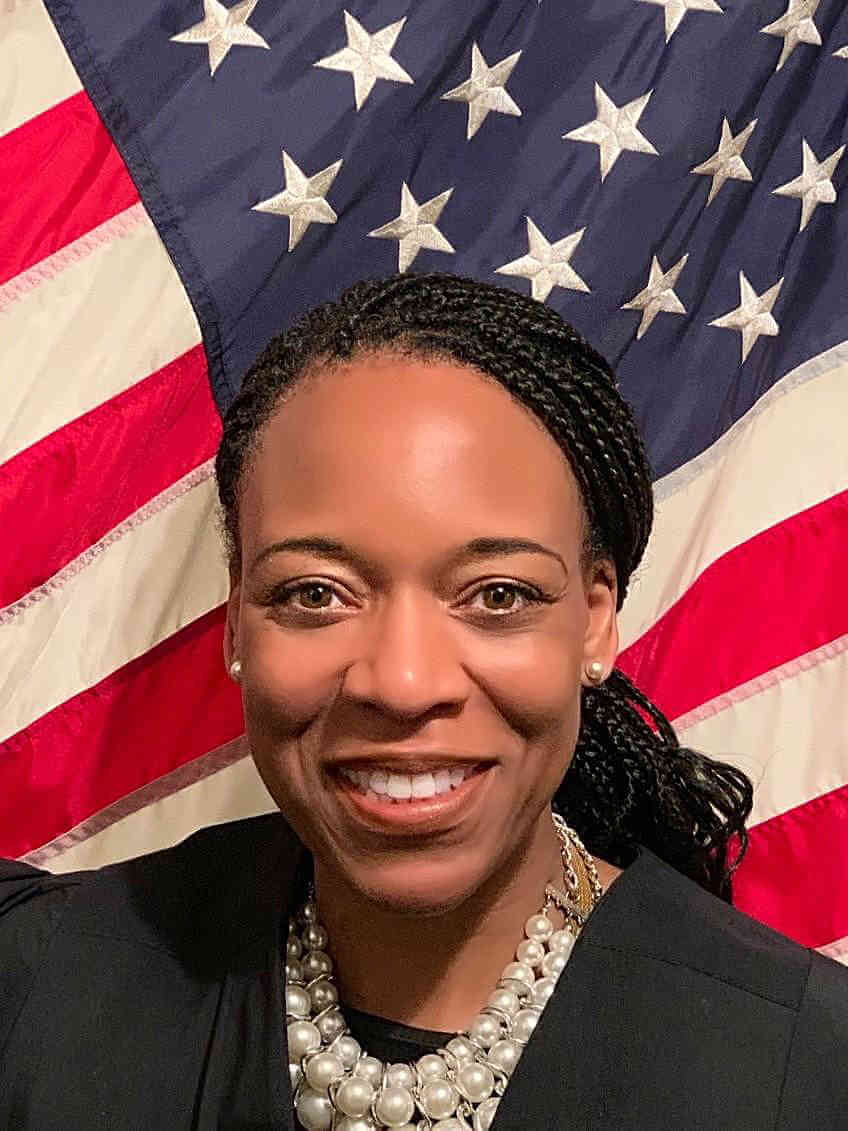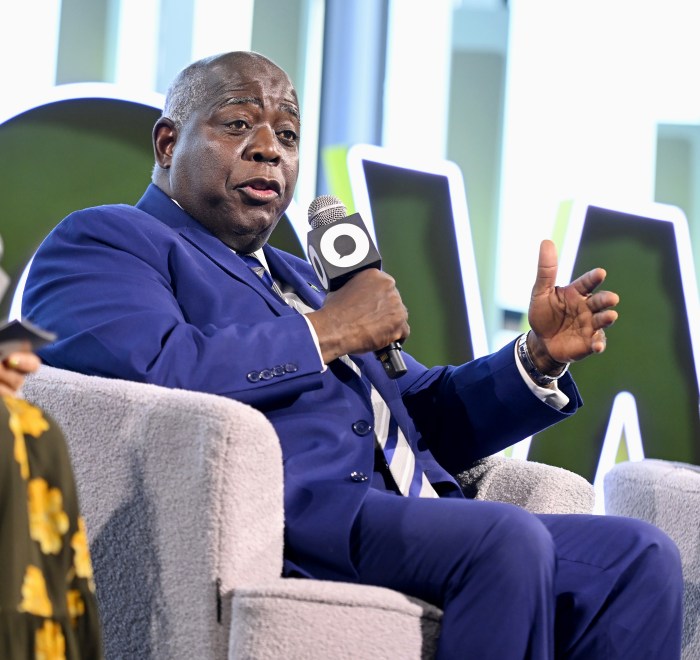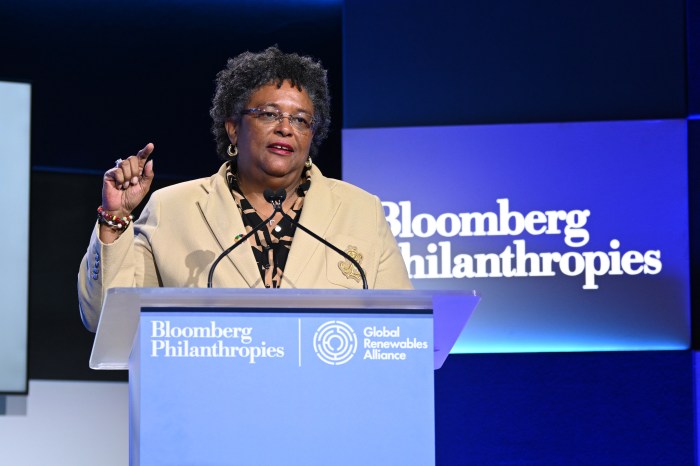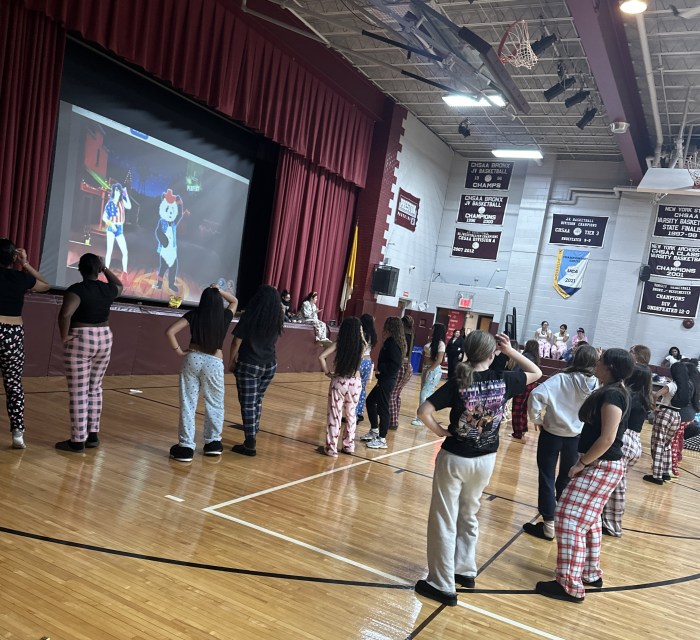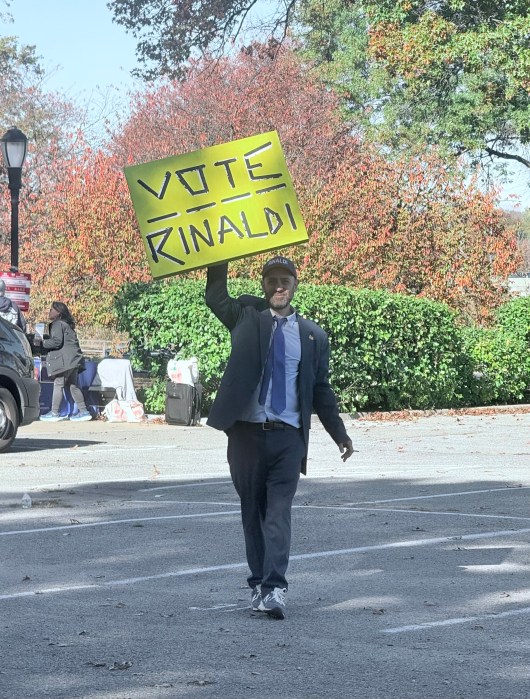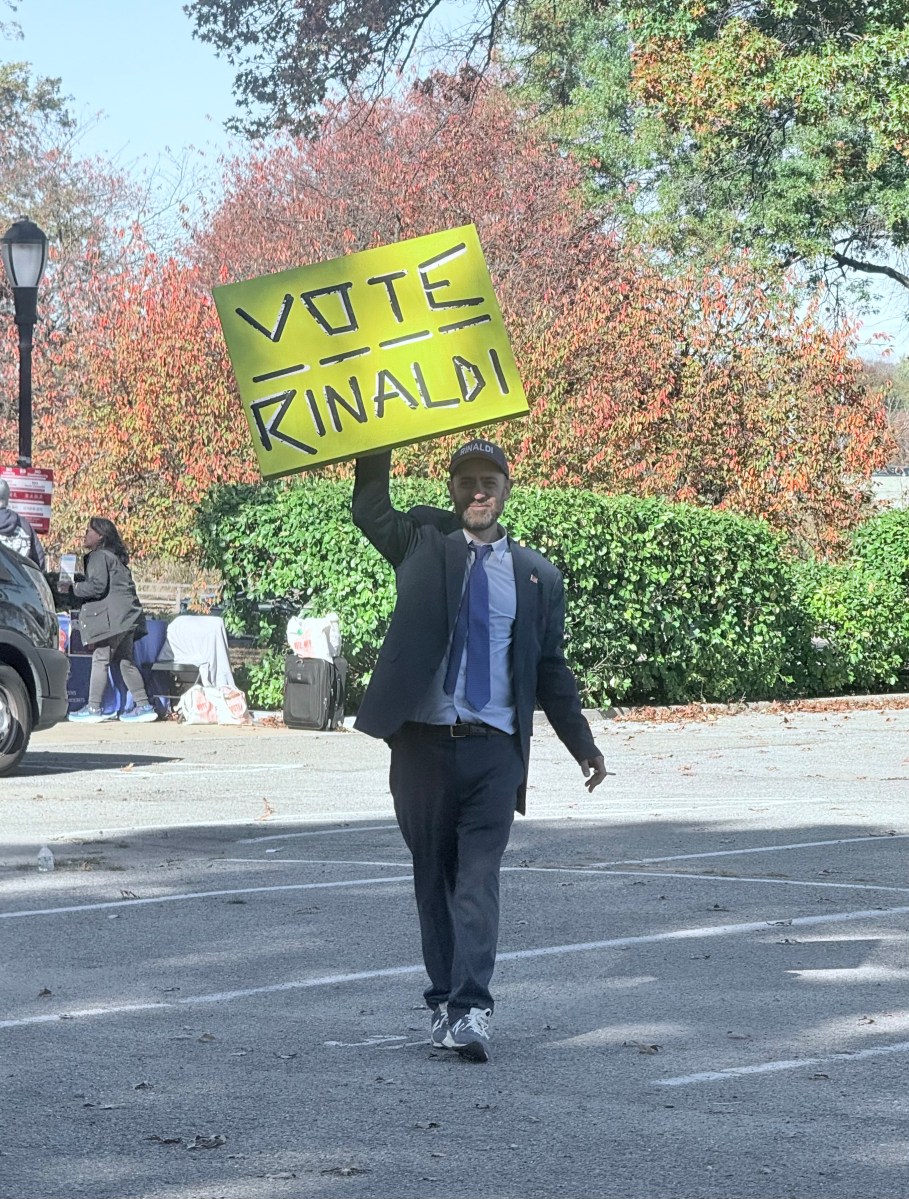A Bahamian-American jurist, elected as a Civil Court judge since 2014, from the historic 10th Municipal Court District in Harlem, has described as “rewarding” her experience to date sitting on the bench.
“I am grateful to be entrusted with the responsibility of making well-reasoned, thoughtful and fair decisions that impact the lives of the people who appear before me,” said Judge J. Machelle Sweeting, the only African American woman jurist currently assigned to the New York County Family Court, in an exclusive Caribbean Life interview on Saturday.
“Throughout life, I have intersected with people of diverse backgrounds and experiences,” added Judge Sweeting, who presides over cases involving the most intimate disputes about child custody, visitation, guardianship and domestic violence between family members.
“One of the greatest rewards as a judge are the success stories from people who report that their interaction with the court was a transformative and positive experience that empowered them with information, about unforeseen options, and that gave them the courage to change direction and make better choices,” she continued. “As a judge, I have the unique opportunity to unleash someone’s potential.”
Judge Sweeting, who received her legal training at Rutgers University School of Law in Newark, NJ, said that though she was born in Harlem, she frequently visited the Bahamas, where her late father, William Sweeting, was born. He hailed from the island of Andros in the Bahamas.
The judge’s mother, Mary Sweeting, was born in Harlem.
Judge Sweeting said her parents met while her mother, whose father hailed from the Turks and Caicos Islands, was traveling to the Bahamas.
“I was raised in the Polo Ground Housing Projects in Harlem, with frequent visits to the Bahamas to spend time with relatives,” Judge Sweeting said.
“I remain committed to being a positive role model and to inspiring others in my neighborhood to pursue a career in law,” she added. “It is important that young people see and have direct access to people who are in the professions that they aspire to enter. This includes interactions with judges and other legal professionals outside of the court.
“Thus, I continue to reside in the beloved Village of Harlem, which is where I grew up,” she continued. “I also visit the Bahamas to remind Caribbean nationals that the opportunities are endless.”
Judge Sweeting said she was “both humbled and deeply” honored to preside in the court where Judge Jane Bolin once sat and to carry on her legacy.
Sweeting said her appointment is “historic” in that there has never been an African American women jurist assigned to the New York County Family Court since Judge Bolin was first appointed in 1939. Judge Bolin served for 40 years as a Family Court judge before she retired at 70 in 1979.
“It is in the life of Jane Bolin that I found many parallels that have helped define my focus in accepting the assignment to serve as a Family Court judge,” Judge Sweeting said.
Like Judge Bolin, Sweeting began her career as an Assistant Corporation Counsel in the New York City Law Department, where she was a founding attorney of the Special Federal Litigation Unit.
“We were both raised in community-conscious households by parents who instilled in us an unbridled passion for law and justice, especially as it relates to protecting the most vulnerable population of children and families,” Judge Sweeting said.
Most recent, she said she had “the esteemed privilege” to speak at Yale Law School in celebration of the life and legacy of Judge Bolin.
“As I walked along the pristine grounds of Yale, one of our nation’s most prestigious campuses, which is known for its elite ‘polo club,’ I could not help but reflect on the fact that someone like myself, who grew up in the ‘Polo’ Grounds, a housing project in Harlem, has now become a judge,” she said. “My life is but one example of the scripture: ‘For, with God, nothing shall be impossible” [Luke 1:37 (KJV)].
The 10th Municipal Court District in Harlem, which extends from 110th Street to 155th Street in Manhattan, was “specifically created in 1939 to provide a pathway for talented legal professionals to become judges,” Judge Sweeting said.
Prior to the creation of this district, she said the possibility of black lawyers becoming judges in New York had been “nearly impossible.”
In New York County Family Court, Judge Sweeting said there is always the “ever-present challenge” of high volume of cases, pressures of limited time and isolation that can result from spending long hours alone in deliberation to effectively adjudicate cases.
She said these challenges are overcome by maintaining a work-life balance, “which is supported by the many new initiatives that have been implemented in the court.”
With regard to case volume, she said she has continuously served as an active member of the court’s strategic planning committee that is charged with the responsibility of developing ways to improve court operations and facilities to promote access to justice in the court system.
Sweeting said innovative initiatives that have been implemented include allowing litigants to file cases electronically and to have scheduled case “appointments”, rather than being subject to long wait times in court.
To ensure the timely disposition of cases, she said she has been appointed to preside over a newly-created “trial part” and a “remote access part”, which allows litigants to appear before her by video, from a secure location, when appearing in person poses a harm or undue hardship.
Judge Sweeting said these initiatives have been instrumental in reducing case loads and in increasing access to justice.
Stating that the Family Court, as well as the Civil Court, to which she was elected, is known as “The People’s Courts,” Sweeting said it is important for her to “create the proper balance” that allows her to maintain her “independence, impartiality and autonomy, without becoming isolated, and to remain connected to the people who we serve.”
“Because the law does not operate in a vacuum, my courtroom is always overflowing with the presence of visitors,” she said. “Whether they are law students or persons simply interested in learning more about the inner-workings of our court system, the doors of my courtroom are open to the public.”
Sweeting said she loves being a judge, adding she has been nicknamed “Sweet Justice.”
“More important than the title is the opportunity to uphold the Constitution and to ensure that its ideals of freedom, equality and justice are applied to all,” she said. “As a judge, I am able to make a decisive impact on people’s lives. This is a responsibility that I take seriously.
“The law and its system of justice have always been the bastion of hope for people seeking relief from discrimination and/or any other form of oppression,” Judge Sweeting continued.
In addition to her studies in the US, she said she studied law in the Bahamas, the United Kingdom, Zimbabwe and Botswana.
Judge Sweeting is also admitted to practice law in the state and federal courts of New York; the Bahamas; Washington, D.C.; and the Second Circuit of Virginia.
Prior to being elected a judge, she served as an assistant district attorney; an assistant corporation counsel; a law clerk to a Supreme Court judge; an administrative law judge; and an adjunct law professor.
“The breadth and depth of my legal experience give me a very broad perspective about the law and a deeply-rooted understanding of its impact beyond the doors of my courtroom,” Judge Sweeting said.
“As a Caribbean-American woman, the lens by which I see cases are broadened to include the collateral consequences and its impact on immigration, housing, families, employment and education,” she added. “As a judge, I am able to mete out justice, with a passion for law and compassion for people.”


